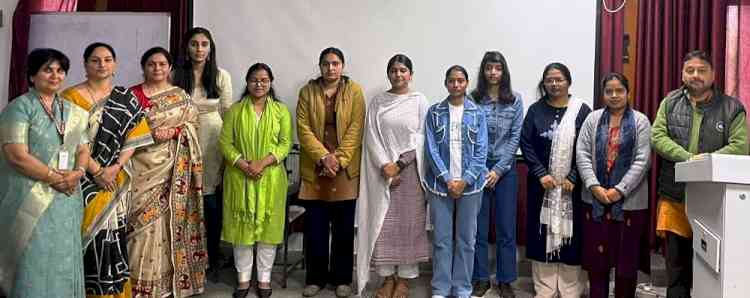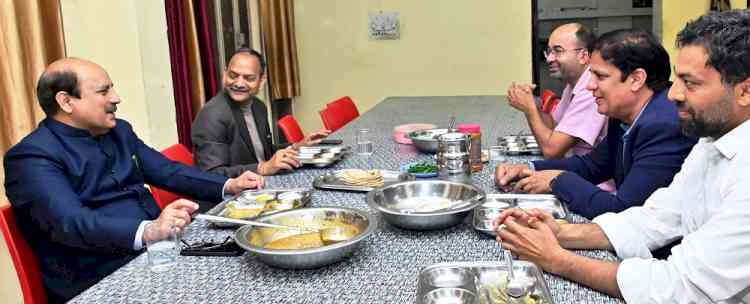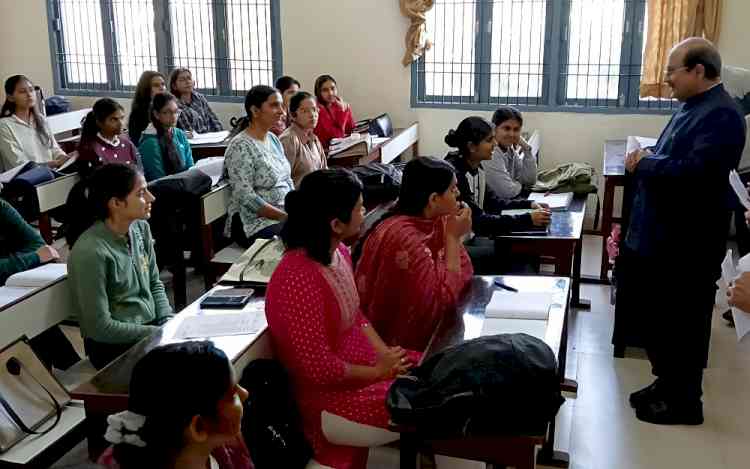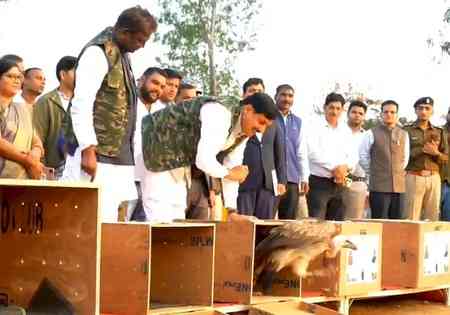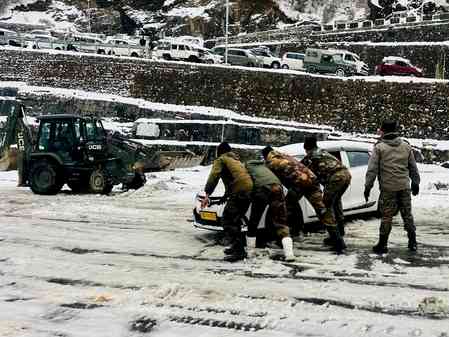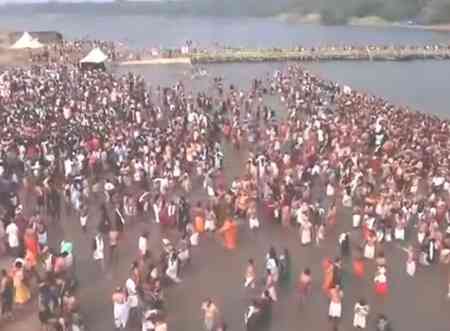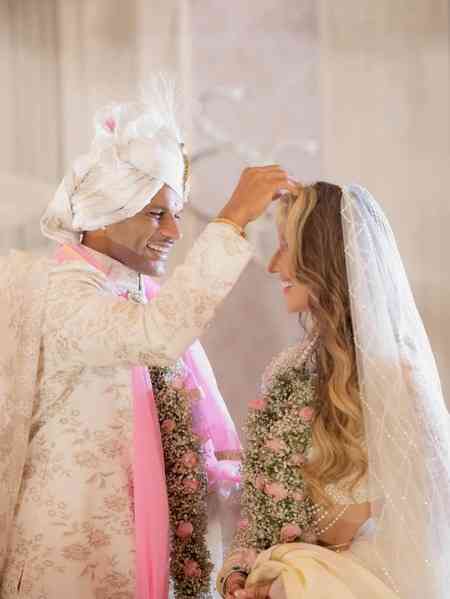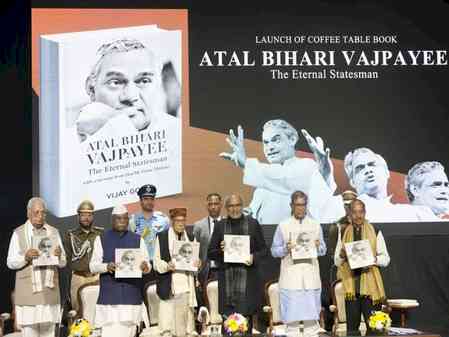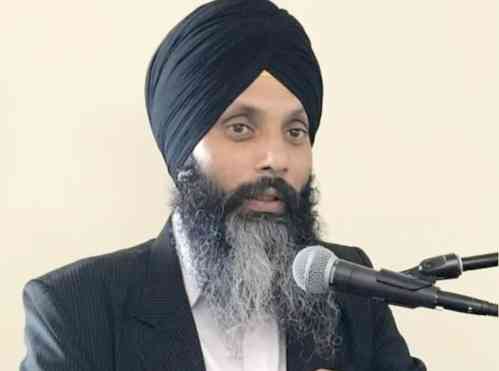National Workshop on theme 'Culture, Gender and Modernity'
Two-Day National Workshop on the theme 'Culture, Gender and Modernity' started at the Institute of Social Science Education and Research (ISSER), Panjab University with great enthusiasm and scholarly fervour.
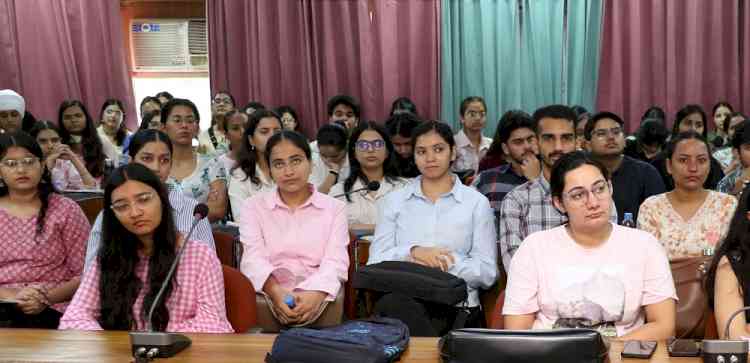
Chandigarh, September 19, 2025: Two-Day National Workshop on the theme 'Culture, Gender and Modernity' started at the Institute of Social Science Education and Research (ISSER), Panjab University with great enthusiasm and scholarly fervour.
The workshop is aimed to bring together eminent academicians, researchers, and policy experts to deliberate on the intersectionalities of culture, gender, and modernity, and their implications for contemporary social science research.
Several distinguished dignitaries like Anirudh Tiwari (IAS), Director General, Mahatma Gandhi State Institute of Public Administration, Government of Punjab; Prof. Upasna Joshi Sethi, Honorary Director, ICSSR-NWRC and Convener of the Workshop; Prof. Y.P. Verma, Registrar, Panjab University; Prof. Meenakshi Goyal, Director, Research and Development Cell, Panjab University; Prof. Rupak Chakravarty, Chairperson, Department of Library and Information Science, Panjab University; and Prof. Anju Suri, Coordinator, PU-ISSER and Convener of the Workshop graced the event.
The ceremony commenced with the traditional lighting of the lamp by the esteemed dignitaries, symbolising the enlightenment and pursuit of knowledge. Prof. Anju Suri extended a formal welcome, read the concept note of the theme, and highlighted the relevance of the workshop, underlining the need to explore the complex interconnections between culture, gender, and modernity and their significance in enriching contemporary social science research through intersectional approaches.
This was followed by a mesmerising sitar recital in Raag Bhairavi by Umesh Kumar from the Department of Music, accompanied on the tabla by Divyansh Thakur, which set a serene and reflective tone for the session, also highlighting our traditional cultural roots.
In his address, Prof. Y.P. Verma spoke on the evolving nature of cultures and societies, and emphasised the importance of adapting to change while remaining mindful of its consequences. Prof. Meenakshi Goyal further discussed the need to recognise gender diversity in a rapidly modernising world and stressed that true progress requires both structural reforms and cultural transformation to overcome challenges such as patriarchal mindsets.
Delivering the keynote address as Chief Guest, Shri Anirudh Tiwari (IAS) offered deep insights on the dynamic nature of culture and modernity, remarking that modernity is a function of time and must be understood in context. He reflected on how science, social science, and history are often shaped by those in power, and advocated for critical reasoning, freedom of thought, and rational inquiry – values embedded in India's ancient texts such as the Bhagavad Gita and the Upanishads. He urged educators to prepare students not merely for livelihoods but for life, and concluded his address by underlining freedom and equality as two non-negotiable pillars for building a truly modern India.
Prof. Upasna Joshi Sethi delivered an insightful session on work stress and its management, explaining the causes, symptoms, and impact of stress on job performance, and sharing practical strategies for managing stress effectively.
Prof. Anju Suri also spoke on orality as a tool in social science research, and highlighted how traditions and folklores serve as significant sources that reflect the customs, beliefs, and socio-cultural trends of a society, and advocated for interdisciplinary and multidisciplinary approaches to enrich social science research.
After the lunch break, Prof. Rupak Chakravarty, Chairperson of the Department of Library and Information Science, Panjab University, conducted an engaging hands-on training session on the use of Mendeley, a free reference management software developed by one of the world's leading academic publishers. He demonstrated the practical working of the software, highlighting how it can streamline the process of generating in-text citations and bibliographies, thereby helping researchers and students to maintain academic integrity, avoid plagiarism, and make their scholarly writing more evidence-based and systematically organised. The session offered participants valuable skills in digital reference management and underscored the importance of adopting modern digital tools in academic research practices.
The first day of the workshop thus offered a rich blend of scholarly discourse, cultural performance, and interdisciplinary perspectives, setting the stage for further engaging sessions on Day 2.



 City Air News
City Air News 
